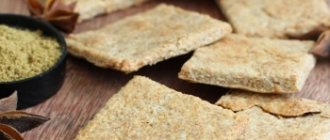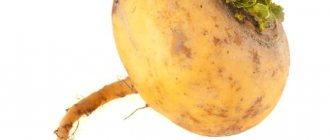Types of sugar
Sugar can be divided according to several criteria.
The first classification divides sugar into the following types - natural, which is included in products (for example, fructose in berries and lactose in milk), and added - this is the well-known refined one, added to many well-known drinks (Coca-Cola, concentrated store-bought juices and etc.) and baked goods. The first type of sugars is considered the best for consumption.
The second classification is more familiar to us and identifies the following types of sugar (let's look at the most famous):
- Granulated sugar - granulated sugar or beet sugar. The most popular and used by mankind - almost 60% of sugar is made from the root crop of sugar beets.
- Cane sugar – obtained from cane juice. We often see it in brown color - it is unrefined cane sugar, it has a pronounced smell of molasses.
- Maple sugar is probably the most ancient of all presented. The indigenous peoples of America also discovered a way to extract sugar from maple, although it was liquid. Now it is called syrup. By leaving it in the cold overnight, they received “sweet ice” - ice cream. Nowadays maple sugar is obtained by evaporating maple sap.
- Palm sugar is extracted from the sugar palm and is popular in eastern Asia. It does not look like the white crystals we are used to. This sugar is more reminiscent of dried caramel - the same color and viscous consistency.
- Grape sugar is the most insidious and harmful to the figure of all. It has less sweetness, so it needs to be added to foods more than others. At the same time, the calorie content is no less than others.
- Malt sugar is isolated from cereals. You rarely see it in the kitchen, but it is always in abundance in beer factories, as it participates in the fermentation process, speeds it up, feeding the yeast.
- Coconut sugar - obtained from coconut pulp. It is produced without heat treatment.
What is the difference between cane sugar and white sugar?
The most basic difference between cane sugar and regular beet sugar is the way they are processed.
- Beet sugar is obtained by thinly slicing the root of the sugar beet, which releases the sugar juice. It is filtered and purified. By heating it, crystals called granulated sugar are obtained.
- Cane sugar has a more complex production process - it involves the use of bone char - a substance obtained from the charring of animal bones. This ingredient helps whiten and filter sugar. If it is removed from production, the result will be unrefined cane sugar, which is also permitted for consumption.
- This, by the way, is another difference - beet sugar is used only in refined form, while cane sugar can be seen in the store even unrefined.
- When consuming cane sugar, you need to be sure that it is not made from a GMO product, which cannot be said about beet sugar. As is known, eating genetically modified foods has a negative effect on the functioning of the liver, kidneys and other organs of a living organism.
What is sugar
Sugar is a class of carbohydrates that has a sweet taste.[2]
There are different types of sugars, starting with simple sugars (called monosaccharides) such as glucose, fructose and galactose.
There are also more complex forms (called disaccharides) such as sucrose, maltose and lactose.
Natural sugars
Glucose. It is found in plants and fruits and is a by-product of photosynthesis. In our bodies, glucose can be burned as energy or converted into glycogen (forms an energy reserve and is also broken down into glucose if there is a deficiency). Our body can produce glucose when it needs it.
Fructose. It is a fruit sugar found in fruits and is also found in cane sugar and honey.
Sucrose. This sugar is found in the stalks of sugar cane, the roots of sugar beets, and can be found, along with glucose, in some fruits and plants.
Lactose. Essentially, it is milk sugar. Children have the enzyme needed to break down the molecule into lactose, while some adults' bodies are unable to do this.
How much sugar can you consume per day
According to the World Health Organization (WHO), sugar intake should be no more than 5-6% of daily calories consumed. If we translate into usual numbers, then this is 30 g - approximately 6 teaspoons of sugar. Agree, we can consume much more sugar per day, given its addition to drinks and food, especially confectionery.
For children, this figure is even less - only 1.5–2 teaspoons. And while adults can still control its consumption, it is more difficult with children. Kids love sweet candies very much, but getting them to drink bitter tea is a real problem.
Video:
12 Signs You're Eating Too Much Sugar Expand
Is it okay to have sugar while losing weight?
The dose of sugar that will allow you to lose weight is 12 teaspoons per day. However, calculating this number is not so easy. After all, it is present in many products.
For this reason, WHO recommends gradually reducing the amount of free sugar during weight loss. Initially, this should be 10% of total energy consumption, then reduced to 5%, which is approximately equal to 6 teaspoons.
A high sugar diet may lead to chromium deficiency
Chromium is a trace element that helps regulate blood sugar levels. Although it can be found in meat, seafood and plant foods, most people do not get enough chromium from refined starches in their diet.
Composition and calorie content
Sugar is a carbohydrate found in many foods and goes by “many names.” In milk there is lactose, which is beneficial for the body; in fruits and berries there is fructose. It contains many useful macro- and microelements - calcium, iron, sodium and potassium, as well as B vitamins. Unrefined cane sugar is also rich in, among other things, phosphorus, zinc and vitamin C.
The calorie content of sugar is 400 kcal per 100 g of product. Agree, this is not a small number, especially if you count how much sugar we consume per day by eating a piece of cake or drinking a cup of sweet tea.
What are the benefits of sugar?
General benefit
Many people know about the dangers of sugar, so there are more supporters of its negative effects. But it is worth remembering about its positive qualities, which can play an important role in health when consuming sweets in the right quantities. It is also important what this sugar is obtained from - preference should be given to fruits and berries. The sugar in these products is more easily absorbed by the body.
Sugar, due to its generous caloric content, is an excellent supplier of energy. It is not for nothing that it is added along with caffeine to energy drinks used for vigor.
Industrially produced sugar stimulates the functioning of some human organs, such as the liver. By adding sugar to food, blood circulation in the brain improves, and the pancreas begins to produce insulin, which promotes the release of the happiness hormone - serotonin.
For women
For women, even greater joy will be brought by the fact that from sugar you can make a large number of scrubs and masks that are beneficial for the skin, nourishing the skin and reducing skin inflammation.
For men
The high carbohydrate content of sugar provides the body with additional energy. Therefore, products with added sugar will help you quickly refresh yourself during heavy physical activity and give the body strength and energy. But it’s worth remembering the permissible limits, because sugar’s benefits can easily turn into harm.
During pregnancy
Drinking drinks with added cane sugar will reduce swelling and alleviate toxicosis. A drink with added sugar and a small amount of ginger will help best (you need to drink it once a day) - it effectively reduces the unpleasant symptoms of pregnancy, improves metabolism and digestion.
When breastfeeding
When breastfeeding, it is also worth replacing beet sugar with cane sugar. It contains more beneficial substances than regular sugar, which will be transferred to the baby through milk. Sugar promotes the production of the happiness hormone, which helps to recover faster after childbirth.
The permissible dose for nursing women is 2–3 teaspoons.
Video:
Is it possible for a nursing mother to have sweets Expand
For children
Consuming sugar in the right dosage is good for children. The rapid breakdown of carbohydrates and their conversion into energy will give children additional strength, especially since they are very active at an early age. Sugar has a beneficial effect on several functions of the child’s body, one of which is improving brain function. Moreover, a sweet product will improve the child’s mood.
The permissible daily sugar intake for a child is 1–2 teaspoons.
When losing weight
Despite the widespread belief that completely eliminating sugar from the diet promotes weight loss, research has confirmed something else. When consuming sugar in acceptable quantities (30 g per day), a person is also able to lose weight. Fat will have a much worse effect on your figure.
What is the harm of sugar for a woman’s body?
Women should be wary of sugar not only because it sticks to the waist and stomach, but also because it has significant effects on her reproductive function.
- Excessive accumulation of excess fat leads to increased production of estrogen. As a result, a hormone imbalance occurs in the body, which will not allow a woman to become pregnant.
- Another dangerous disease is endometriosis. It also occurs due to excess estrogen. With this disease, the cells of the uterine mucosa grow and can penetrate into neighboring tissues.
- The development of polycystic ovary syndrome cannot be ruled out. This malaise provokes a disruption in the normal functioning of the ovaries.
- The beauty and elasticity of the skin depends on the balance of fluid in the human body. Abuse of sugar leads to a lack of water and gradual withering and dryness of the skin. In addition, empty carbohydrates negatively affect collagen fibers, which determine the firmness of the face.
How can you replace sugar when losing weight?
When a person begins to adhere to proper nutrition or diet, the question begins to arise - is it possible to consume sugar? Many are inclined to answer negatively, since high consumption of sugar can lead to extra pounds, and through them – to more serious problems and diseases. Nowadays, there are many sugar substitutes, sweeteners, and so on. But even their choice should be approached very responsibly, since they can also be harmful to health.
There are two types of sugar substitutes - synthetic and natural. Of course, natural ones will bring less harm and more benefit, the most popular of which are fructose and sorbitol.
Fructose is found in large quantities in fruits and berries; doctors often recommend it for diabetics. Given its good digestibility, it is also useful for children and the elderly, as well as for those who are watching their figure, since fructose does not lead to weight gain.
Sorbitol is made from corn starch, but it is also found in a lot of rowan (it was originally isolated from the berries of this plant). The calorie content is 4 kcal/g, which is no different from regular sugar. Its sweetness is in no way inferior to sugar, but it is better absorbed by the body and does not lead to extra pounds due to the fact that it is not a carbohydrate. Also, one of the advantages of sorbitol is the fact that it is an excellent nutrient medium for beneficial intestinal microflora that produces B vitamins. Sorbitol can be safely added to drinks, baked goods and other foods that require sugar.
Among natural sweeteners, one can also highlight maple syrup and Jerusalem artichoke products, which have been gaining popularity lately - its syrup can also be used as a substitute for sugar. They can also be substituted in baked goods because they are heat-resistant.
But still, the most popular and beloved by all is honey, which contains many microelements that are beneficial for the human body. It can be called the most useful and accessible sweetener for everyone.
Synthetic sweeteners include aspartame and cyclamate. They are much sweeter than sugar, so they are consumed in much lower quantities. They do not affect the number on the scale and are not harmful to health.
What else is important to know about sugar?
Important:
- consume sugar rarely and as a treat, even the best types;
- avoid hidden sugars - for this you need to carefully study the composition of the purchased products (especially bread, sauces, yoghurts, baby food);
- added sugars provide extra calories and minimal benefit;
- natural sweeteners - fruits, dried fruits, juices;
- When eating natural foods, the craving for sugar decreases, the addiction to sweets disappears, but the pleasure of eating natural sweets appears.
If you feel a strong sugar addiction that you cannot cope with, you should immediately consult a doctor. The results of biochemical and hormonal studies will help the specialist determine the severity of the problem and prescribe adequate measures to correct the condition.
This may not be the whole truth about sugar. But exactly what is described above will help to correctly assess the importance of this product for the body and form the right attitude towards its use.
Thanks for sharing with your friends!
- 1
Cane sugar: benefits and harms
Cane sugar is practically the healthiest of all its counterparts, especially unrefined brown sugar. A positive difference from beet sugar is the fact that it is not refined or treated with slaked lime, therefore it contains more useful substances.
- The benefits of antioxidants.
Due to its plant origin, cane sugar is rich in antioxidants that fight infection and strengthen the immune system. Antioxidant properties are manifested due to the high content of phenolic compounds and flavonoids, which act as anticancer, anti-inflammatory, antiallergic and antiviral substances. Antioxidants also prevent the risk of cancer because they can affect free radicals. The development of cancer is also hampered by the minerals contained in sugar and the alkaline environment of the product. - Supporting the human immune system.
The content of calcium, copper, manganese, magnesium, potassium, phosphorus, and a variety of vitamins supports good health. It counteracts cancer and stabilizes blood sugar levels in people suffering from fever, cleanses the urinary system, heart, kidneys, brain, eyes and genitals while reducing the levels of bad cholesterol as well as triglycerides in the body. The product provides relief from various diseases. Sugarcane itself contains large amounts of B vitamins, inorganic salts and organic acids such as fumaric, succinic, citric and malic. - Safe energy supplement.
Drinking drinks with it and a few drops of lemon provides energy for the whole day due to its high calorie content. - Eliminate skin problems.
Alpha hydroxyl acid found in sugar cane products is beneficial for the skin. The substance prevents the appearance of acne, reduces inflammation of existing ones, moisturizes the skin and prevents aging. Therefore, masks made from cane sugar are very useful. - Dental health.
Unlike other sugars, cane sugar does not affect the occurrence of caries. The high mineral content in it and products made from it prevents tooth decay and also limits problems with bad breath.
But we should not forget about its harm. The fact is that in large quantities cane sugar leads to diabetes, and sometimes to hypertension. Therefore, it is necessary to use it in moderation and not forget about the possible harm.
Video:
how to spot fake cane sugar Expand
What are the dangers of sugar abuse?
In addition to a number of diseases, abuse threatens obesity. And this is the scourge of the modern world. Many of us have observed how many hamburgers a fat person in a diner eats at one time, washing them down with soda and eating sweet pies. The thing is that in the human brain there are cells that are responsible for pleasure. Sugar fires up this pleasure center. Therefore, it is very difficult for a person to stop. For most obese people, it doesn't matter how much they eat. This develops into an addiction, which is very similar to a drug addiction.
The temptation to eat sweets can also disrupt the goals of a person losing weight. However, if you decide to bring your weight back to normal, you should first review and adjust your diet, constantly count how many calories you have eaten, and not resort to vitamins, dietary supplements, or weight loss products.
Doctors' advice on sugar consumption
Uncontrolled consumption of refined sugar leads to serious health problems for a person. At the same time, some doctors do not advise completely giving up sugar, others consider it “white poison” and recommend giving it up completely. But it's not that simple.
The health benefits and harms here are obvious. And in order to protect your body from negative effects, you should follow simple rules: eat in moderation, play sports, sleep at least 7-8 hours a day.
The benefits and harms of coconut sugar
Coconut sugar is produced with minimal heat treatment, due to which it retains all its beneficial properties and substances. This product contains B vitamins, zinc, iron, potassium, magnesium, as well as beneficial amino acids and antioxidants. It is less harmful to your figure and overall health than beet sugar. The reason for this is the low glycemic index, which indicates the rate at which sugar is broken down in the blood and converted into glucose. When broken down quickly, glucose can cause the formation of fats. When supplied slowly, glucose serves as a source of energy, not new fat. This product is better and healthier for the body. Despite this obvious advantage, the caloric content of coconut sugar is just as high and does not differ from regular sugar. Therefore, if you lead a sedentary lifestyle, you will not be able to maintain your figure even taking into account the positive glycemic index of coconut sugar.
However, it is worth remembering that coconut sugar is a carbohydrate and is not advisable for consumption by people with diabetes.
Why sugar is bad for you
The beneficial properties of sugar have been sufficiently studied. If the permissible limit is exceeded, carbohydrates are harmful to health. Often, excess consumption of saccharides is associated not only with a passion for confectionery products. Please note that sugar is also found in many fruits and vegetables.
Addictive
Experts emphasize that sweet carbohydrates can be classified as narcotic drugs to which the body becomes accustomed. Constant consumption of excess amounts of saccharide leads to severe dependence on both psychological and physiological levels.
Creates a feeling of hunger and promotes weight gain
Saccharide is a fast carbohydrate that contributes to an unnatural feeling of hunger. After entering the body, saccharides lead to a sharp increase in glucose and insulin levels. As a result, a person often overeats. Loss of control over appetite is associated with a malfunction in the brain's neural reactions.
It is known that carbohydrate in the liver is in the form of glycogen. This substance controls fat reserves in the body. If glycogen levels in the body are high, the body receives a signal to store fat in the thighs and abdomen.
Negatively affects the brain
Many people wonder whether sugar is good or bad for the brain. It is known that the benefits involve stimulating brain activity. The harm of excessive use of the substance is to increase the risk of developing cardiovascular pathologies. The consequences may include a stroke.
Causes diabetes
Lack of control over the amount of fast carbohydrates consumed is accompanied by the likelihood of developing obesity and diabetes. Harm also implies latent progression of pathology with detection at an advanced stage.
Weakens the immune system
Constant consumption of sweets causes harm by weakening the immune system. The properties of the saccharide imply an increased risk of developing a chronic form of candidiasis, which also indicates a decrease in the functioning of the immune system.
Attention! Saccharide is a nutrient medium for Candida fungi. Avoiding sugar is beneficial in treating thrush.
The harm caused by decreased immune function is associated with the properties of the carbohydrate. Sugar does not contain essential B vitamins that provide significant benefits.
Important! The sugar norm should not be exceeded in case of oncology.
Causes cardiovascular diseases
Exceeding the norm of carbohydrate intake, especially in old age, provokes diseases of the heart muscle and blood vessels. There is an increased likelihood of heart attack and heart muscle dystrophy. The harm is caused by vitamin B1 deficiency. This component has beneficial properties for the adequate functioning of the heart.
Destroys teeth
The harm lies in the detrimental effect on tooth enamel, which begins to thin out. Sugar is a breeding ground for microorganisms living in the oral cavity. A diet with a significant content of sugary foods and drinks is dangerous for the development of caries.
Leads to early skin aging
Sugar is not a healthy substance for the skin. Carbohydrates cause damage to the skin, which is manifested by premature aging with the appearance of wrinkles. The epidermis gradually loses its properties, such as elasticity and shine.
Many women are interested in whether sugar is beneficial or harmful for hair. A component can only be useful if the norm is met.
Impairs vision
Excessive consumption of confectionery and flour products is harmful to health. Sugar is not considered a healthy product for vision. Indulgence in chocolate, ice cream, sweets, and cakes can lead to decreased visual acuity.
Leads to hormonal imbalance
The harm of consuming sugar in excess is obvious. Excessive consumption of sweet foods accompanied by a sedentary lifestyle leads to hormonal imbalance due to obesity. It has been proven that adipose tissue can synthesize female sex hormones - estrogens. The problem of the harm of sugar is especially relevant for men.
Flushes calcium from the body
Fast carbohydrates are considered a rather heavy substance for the body. The absorption of saccharides is accompanied by the occurrence of calcium deficiency. This is due to their properties of leaching useful components from bones and teeth. Thus, osteoporosis gradually develops.
Increases blood pressure
Carbohydrates harm the heart and tend to increase blood pressure. However, if you give up sugar, there will be no health benefits either. In small quantities, sweet foods are beneficial. Exceeding the permissible norm exclusively triggers pathological processes in the body.
Depletes energy reserves
Sugar is considered a fast carbohydrate. This means that saturation occurs quickly. However, we cannot talk about sugar as a long-term source of energy. After eating sweet foods, a strong feeling of hunger occurs quite quickly, which often causes harm in the form of overeating.
Liquid grape sugar: benefits and harms
As in the case of coconut sugar, no heat treatment is used for the production of grape sugar, and all the useful components of the raw materials used remain in the product of its processing. It will contain vitamins C, K (rarely found in sugar and very useful for the body), A and group B. Among the macro- and microelements, copper is distinguished - there is more of it in grape sugar than in others.
Antioxidants - flavonoids and quarticin - will bring many benefits to the body - the latter has an anti-inflammatory and neutralizing effect on unwanted viruses and bacteria. When consumed in moderation, liquid grape sugar can improve digestion and lower blood cholesterol levels.
Liquid grape sugar can often be found in commercial products. It can be added both to the regular diet and to sports and baby food, which makes it a good and healthy sweetener.
But in order to get the maximum benefit from it, you need to remember the daily intake: for an adult it is 5 teaspoons, for children - 2 times less.
Video:
Is grape sugar good for children Expand
Is there any benefit from sugar?
Sugar is an important nutrient; without it, tissue cells in the human body cannot develop normally. Accordingly, this product must be present in the body constantly and in sufficient quantities. What specific benefits does sugar bring?
- With its deficiency, the body begins to malfunction: disturbances in the activity of the nervous system and brain occur, and blood begins to circulate at a slow pace. Sugar can prevent these troubles and stimulate physiological processes. One spoon of sand is enough - and the body will be “like a clock.”
- Thanks to sugar, memory works better. Therefore, during mental work it is impossible to do without it.
- Sugar prevents vision from going dark. Therefore, when reading books, working with documents and sitting at the computer every day, it is simply necessary.
- Thanks to sugar, you can improve your mood, extinguish emotional outbursts, and make it easier to endure the effects of stress.
- A small amount of granulated sugar will help fight chronic fatigue and insomnia.
- If the body chronically lacks sugar, then sooner or later the lungs, liver, kidneys, and gall bladder will almost certainly begin to suffer. Anyone who has ever been to a hospital will confirm: the very first medicine for healing the mentioned organs is glucose, which is essentially sugar in liquid form.
- A small amount of sugar can successfully fight excess cholesterol in the body, thereby reducing the risk of atherosclerosis.
- Also, this product successfully reduces the likelihood of developing arthritis, osteochondrosis, and osteoporosis.
It should be taken into account that it is better to use brown sugar for all these purposes as it is more beneficial for the body.
The benefits of burnt sugar
Everyone tried caramel cockerel on a stick as a child. This sweet candy is nothing more than burnt sugar. And with the right amount of use, such candy is not only safe for the body, it is even beneficial.
Burnt sugar effectively helps with dry coughs, so it can be given in moderation to children with a cold - it will be something like a sweet medicine. This caramel helps eliminate sore throats and relieves irritation of the mucous membranes. Moreover, sugar slightly changes the composition of mucus, due to which it comes out when coughing with all the cold viruses and bacteria.
But it is worth remembering about individual intolerance. For example, in people with hypersensitivity, burnt sugar can only worsen the situation and worsen the cough due to additional irritation of the throat.
Diabetics are also not recommended to eat it, since the calorie content does not change during heat treatment, and the carbohydrates contained can affect blood glucose levels.
What is the harm of sugar for a man’s body?
A man must control the level of consumption of this sweet product. It is for men that the development of diabetes and obesity is accompanied by a decrease in libido and the occurrence of erectile dysfunction.
- Irish scientists have proven that men who do not allow their lives to go without sweets run the risk of impotence several times more often than others. Scientists have found that glucose levels affect the production of male testosterone in the blood. It is reduced by 25%.
- With a stable consumption of sucrose, the process of formation of free radicals will affect the acceleration of aging of the body, rapid fatigue and blockage of blood vessels. Such a set in the future guarantees sexual dysfunction, due to the impossibility of normal blood circulation in the pelvic organs.
- You should know that diabetes treatment involves the doctor prescribing a number of medications, which have side effects including decreased sexual activity.
Sugar in cosmetology
For face
Many have seen facial scrubs with obvious inclusions of sugar in the mixture. And if such masks can be made at home and at a lower price, why pay more? Moreover, an additional advantage will be the fact that you will know the composition of the mask.
- Sugar and lemon scrub mask.
This mask will get rid of rashes and also leave your skin feeling fresh and moisturized. Its preparation is very simple. You need to mix 2 tablespoons of sugar with lemon juice in the same amount. Gently rub the mixture onto problem areas of the skin and leave for 10 minutes, then rinse with cool water. This scrub can be used every day. - Scrub mask made from sugar and honey.
This scrub is suitable for all skin types. To prepare it you will need several tablespoons of sugar and honey in equal quantities. Mix the ingredients thoroughly, apply the mixture to your face and leave the mask on for 10 minutes. Rinse off the scrub with warm water. The procedure can be repeated up to 3 times a week. This mask can be used not only for the face, but also for the body. It is a good anti-cellulite remedy.
For hair
Just like the face and body, the scalp also needs exfoliation to remove dead skin cells, as well as to get rid of excess oil and dandruff.
To prepare the scrub, just mix sugar and regular hair balm and cleanse the scalp with massaging movements.
The best remedy for accelerating hair growth is a mask with mustard. To prepare it, you need the following ingredients: 1 tablespoon of mustard powder, the same amount of sugar, water, olive oil and one egg yolk. Mix all ingredients and rub into scalp. Wrap your head in a towel and leave for 20 minutes (longer is not necessary, since mustard can burn the skin and the effect will be the opposite of the desired one), then rinse with warm water. Repeat the procedure 2 times a week.
For body
- Body Scrub.
You can make a good body scrub using sugar. To do this, just add sugar crystals to the shower gel: you will get a product that exfoliates dead skin cells. And when using unrefined cane sugar, you can feel the pleasant and sweetish aroma of molasses. - Body lotion.
Few people know, but powdered sugar can be used for more than just baking. For dry and chapped skin, you can make a body lotion based on it - just mix the powder with olive oil and apply the mixture to the skin for 15-20 minutes, then rinse the lotion with water.
Video:
sugar body scrub Expand
About the beneficial properties of sugar
We all know from biology lessons that sugar quickly breaks down into glucose and fructose and then enters the blood. Glucose is necessary for the body to function properly.
The second point is our pleasure received from sweets. And if your mood improves, then this point can also be considered a plus.
But is everything so clear in the relationship with sugar and what lies behind these positive qualities?
Harm and contraindications
The harm of sugar lies mainly in the fact that when it is absorbed into the blood, it quickly increases the level of glucose in the blood. Then, just as quickly, this level decreases. Such glucose surges can lead to gaining extra pounds (since the product contains only empty calories) or, what is much worse, to diabetes.
Surely everyone remembers that dentists advise not to consume a lot of sugar, since it is an excellent breeding ground for bacteria, the proliferation of which contributes to the development of caries.
Excessive consumption of sugar and foods containing it in large quantities (think Coca-Cola) provokes heart problems, deterioration of the immune system, spikes in blood pressure and, no matter how strange it may seem, nervousness (after all, sweets usually improve your mood, but when consumed in reasonable quantities).
It is for this reason that the optimal amount of sugar per day is 10 teaspoons. These data are given both taking into account pure sugar, which is added to tea or coffee, and taking into account already purchased sweet products - cake, cookies, juices, and so on. Therefore, if you want to eat a piece of cake, you need to stop adding sugar to your tea.
Can you be allergic to sugar?
An allergy to sugar itself is practically absent, but cases of intolerance to certain types of this product do occur. Typically, an allergic reaction occurs due to the body's inability to digest sugar and results in nausea, flatulence, or diarrhea.
The most common sugar allergy is lactose intolerance.
Reasonable benefits of sugar for the human body
The benefits of sugar are a scientifically proven fact. The usual cube of refined sugar or a teaspoon of sucrose, in the generally accepted understanding, is a disaccharide consisting of glucose and fructose. In fact, sucrose is a chemical substance of a complex structure, which includes groups of high molecular weight compounds - alcohols, proteins, fats and amino acids.
The most important elements for the human body, the content of which determines the benefits and harms of sugars, are glucose, fructose, lactose and other components of natural sugars, the deficiency of which disrupts the functioning of the body.
Reducing the intake of sugars into the body:
- Complicates cerebral circulation.
- Provokes vascular sclerosis.
- Increases the likelihood of the formation of cholesterol plaques and thrombosis.
- Worsens the condition of the joints.
- The liver and spleen are affected.
With an insufficient intake of carbohydrates, the content of ketone bodies in the blood sharply increases, which indicates a violation of carbohydrate metabolism in the body. Fats begin to be used as fuel, with the release of breakdown products - ketones - into the blood and urine. These acids negatively affect the nervous system and depress a person physically and mentally.
Important! Narcologists compare the effects of sugar on the human body with drugs. The entry of sugar into the bloodstream causes a surge of vigor and happiness, after some time a decline in mood occurs, until the next portion of sweets. Such mood swings are a sign of addiction and must be treated.
The daily sugar intake is all the sugar contained in food products included in our daily diet. Preference should be given to natural, easily digestible sugar, which will replenish the body with energy, vitamins and beneficial microelements.
Expert comment:
“As you know, sugar is “white death” or, as it is also called, “sweet poison.”
And as they say: “Any poison is useful in small doses,” and you won’t believe it, but sugar is no exception. The benefits of sugar are much less than the harm, but they still exist:
- sugar ensures normal brain function;
- increases performance;
- lifts the mood (sweet lovers know that they ate candy or chocolate and everything is fine, everything seems not so gray);
- sugar is very good for the liver and spleen (glucose becomes a barrier between the liver and harmful toxins);
- lack of sugar in the body can cause dizziness, irritability and severe headaches;
- lovers of sweets suffer less from arthritis and arthrosis.
Well, this does not mean that you need to immediately start eating kilograms of sugar!
There must be moderation in everything!
There is a statement that the norm of sugar per day is 10 teaspoons, but I hasten to note that now sugar is added to all foods and even salted fish, so without fanaticism, because the harm from sugar is much greater, as I already said, than benefits.
You need to be especially careful with indulging in sweets if you already have health problems, namely diabetes, sugar is generally taboo here!
And, of course, don’t forget that excessive consumption of sweets leads to:
- to problems with blood vessels;
- to excess weight;
- lowers immunity (children get sick more often after holidays, for example, New Year, because there is a lot of sweets at once);
- develops caries, washes away calcium.
The list of anti-benefits of sugar goes on and on.
Therefore, you need to know when to stop everything!
Eat right and be healthy!”
Nadezhda Primochkina, nutritionist-dietitian, Saratov
How to choose and store sugar
When choosing sugar, you should pay attention to the date of packaging, the presence of foreign inclusions and the country of production (correlate it with the type of product chosen). It is better to give preference to unrefined sugar, since due to the peculiarities of its production, more useful substances remain in it.
Sugar should be stored in a dry room with low humidity at a temperature of 15°C. It is better to pour the product packaged in bags into a glass container with a closing lid. If the conditions are met, it can retain its properties for up to 10 years.
Types and characteristics of sugar
The most common type of sugar in our country is beet sugar. At the first stage of production, raw sugar is almost completely unusable, as it tastes unpleasant. At the second stage it is refined and we get the finished product. After complete purification, the amount of sucrose in white sugar can reach 99.9%, in yellow sugar up to 89.9%.
The second type of sugar, no less popular, is cane sugar. It is often used to make sweets and carbonated drinks. Recently, this sugar has been considered a real superfood, and is recommended for consumption even when losing weight.
Maple sugar is produced similarly to cane sugar.
Malt sugar is obtained from millet, barley and rice. This is a native Japanese product and has been produced in this country for more than 2 thousand years.
It is impossible to find sorghum sugar on the shelves of our stores. It is produced in African countries, China and India from the sorghum plant. Due to the low profitability of its production, you can only find syrup in stores, and only if you try hard.
Grape sugar can be called synonymous with glucose; it completely lacks fructose. You can find it on sale both in liquid and powder form.
Palm or jaggery - has a honey or caramel flavor. Rich in nutrients, produced in Southeast Asia.
How to make sugar at home
Making sugar at home is quite simple. You only need one ingredient - sugar beets.
- First, rinse the beets, clean them of dirt, then cut them into small cubes, place them in a saucepan and add water so that the liquid covers them completely.
- Bring the water to a boil, reduce the heat and cook the beets until they soften.
- Then remove the pan from the heat and filter the beet juice using gauze. It must be boiled until it becomes thick, like caramel.
- Place the resulting syrup in a plastic or glass container and set it aside in a cool, dark place. As the syrup cools, it will form crystals, which must subsequently be crushed into small grains, similar to regular granulated sugar.
Video:
how to get sugar from regular beets Expand
Can children eat sugar?
Almost all children love sweets. But an increased amount of sugar in the diet can cause obesity, mood swings and hyperactivity. Therefore, it is very important for parents to control the amount of sugar entering the baby’s body.
Most often, cravings for sweets are associated with the presence of dysbiosis. When it is identified, it is necessary to direct efforts specifically to eliminating the cause. You can get rid of harmful bacteria by using fermented foods. And of course, do not forget to limit your baby’s access to sweets.
What can be made from sugar: recipes
Cotton candy
Of course, homemade cotton candy will not look like the one we are used to seeing from the machine - it is more reminiscent of caramelized threads. But with this recipe you can please your children and yourself at any time of the year. Progress has now reached the point that a machine for making cotton candy can be purchased at home - it will be a small, compact drum. Let's consider both ways of preparing a sweet dessert.
Cooking cotton candy in a saucepan
To do this you will need the following ingredients:
- drinking water – 150 ml;
- granulated sugar – 400 g;
- apple cider vinegar – 2 drops;
- a Chinese stick (for rolling cotton wool) or another strong stick;
- food coloring - optional.
It is better to use a saucepan or stewpan as a container for cooking.
Preparation:
- Mix water, sugar and add a few drops of vinegar to them. You need to make sure that the sugar does not crystallize on the walls of the container. If you want to get colored cotton candy, you can add a little food coloring. You can also add essences of different flavors for taste - it could be mint, orange, berries and many others.
- Pour the resulting mixture into a saucepan and heat with constant stirring. Once the liquid is brought to a boil, remove the saucepan from the heat and cool. Once the syrup reaches room temperature, bring to a boil again. And so 5 times. The resulting syrup should have a golden color and a viscous consistency.
- To transform the cotton candy into thin threads, you need to use a whisk. Using simple movements - dipping and quickly lifting the whisk up - you need to wind the threads onto the stick until you get a hat of the desired size.
Preparing cotton candy in the machine
You will need the following ingredients:
- granulated sugar – 1 kg;
- corn syrup – 250 ml;
- drinking water – 250 ml;
- salt - a pinch;
- Chinese chopsticks (or something similar);
- food coloring, flavoring extracts - optional.
When using food coloring, add 2 drops, and flavor extract - 1 teaspoon.
Preparation:
- Combine sugar, corn syrup, water and salt in a saucepan and stir until sugar has melted. By the way, it can crystallize on the walls of the container, so it must be carefully removed from them.
- Heat the mixture to 160°C, then pour it into another shallow container with the addition of dye and extract.
- Prepare a cotton candy machine. Pour the resulting syrup onto the disk while rotating. When heated, the syrup will begin to disintegrate into threads, which must be collected and wound onto a stick.
The threads remaining on the walls can be used to make candy.
Lollipops
When preparing candies at home, you can experiment a lot with their appearance. These can be the usual round-shaped candies, in the shape of various animals (if you use molds), or a lollipop on a shelf made from small sugar crystals.
The preparation of syrup for regular candy canes can be taken from the homemade cotton candy recipe. You need to pour it into molds, cool, wait until it hardens completely, and voila - the candies are ready.
Making lollipops, although a lengthy process, can be interesting for both adults and children.
You need to prepare the following ingredients:
- water – 500 ml;
- granulated sugar – 800 g;
- food coloring, flavoring extracts - optional.
When using food coloring, add 2 drops, and flavor extract - 1 teaspoon. You will also need glass jars and thread (you can use a regular wooden skewer).
Preparation stages:
- Prepare glass jars - they must be thoroughly rinsed with hot water and dried.
- Cut a cotton thread a few centimeters larger than the jar you are using and fasten it so that the thread hangs into the jar in the middle, without touching the walls, at a distance of 2-3 cm from the bottom. To position it in this way, you can wrap it around a pencil, which you place on the neck so that the thread hangs into the jar.
- The thread must be moistened with water and rolled in sugar, thus giving future crystals a platform for their formation.
- Bring the water in the saucepan to a boil and gradually add sugar to it - 250 g at a time until it is completely dissolved. Once all the added sugar has dissolved, remove the saucepan from the heat.
- When using food colorings and extracts, add all ingredients to the syrup and mix thoroughly.
- The syrup must be cooled at room temperature for 10–15 minutes, then poured into jars so that the thread with sugar is immersed in it.
- Place jars with syrup and string (sticks) in a cool place, protected from bright sunlight, and cover with cling film.
- The first crystals should appear in 4–5 hours. If there is no change after a day, you need to boil the syrup again with more sugar and pour it back into the jar.
- The candy will grow to its optimal size within 3 days. After removing the candy from the jar, you need to give it 10 minutes to dry and then enjoy the delicious candy.
How to get rid of sugar addiction
Getting rid of a sweet tooth is very similar to getting rid of a smoking habit, so it should be done gradually. A new diet should not be formulated with a sharp exclusion of sugar from life, since the body needs to adapt and get used to the changes.
You need to identify the main source of sugar (perhaps it's a lot of Coca-Cola or a lot of sweet caramels) - and find a healthy alternative. Store-bought juices can first be diluted with water, making them less concentrated, and a little later you can completely abandon them, replacing them with freshly squeezed juices.
What can be replaced
It is better to replace sugar with natural sources - fruits and berries (they are full of fructose), dairy products (many of them are rich in lactose). Then the body will not suffer from withdrawal from sweet soda and candy. Try replacing the candy with a date - the same sweetness, but much more benefits.
Video:
what happens if you stop eating sugar for a week Expand
Books about the dangers of sugar
Today, when a healthy lifestyle has become fashionable and many healthy eating methods have been developed, a fairly large number of printed publications have appeared about the dangers of sugar. Some of them are really worthy of attention:
- “We are all one step away from diabetes. Stop Your Deadly Sugar Cravings and Prevent Type 2 Diabetes by Reginald Allouche. The book describes the reasons why we unwittingly become hostage to sugar. At the same time, the author talks about two pandemics: prediabetes and type 2 diabetes. The author urges his readers to be more attentive to this problem, since at the stage of prediabetes, the situation can be changed, but at the stage of type 2 diabetes, the nature of the processes is irreversible. The book also offers a test, after passing which the reader will be able to understand what stage he is at, which means he will have a chance to take timely measures to take the path of healing;
- “Healthy eating without sugar”, author: Rodionova Irina Anatolyevna. In this publication, the author describes in detail the dangers of consuming sugar and offers us many recipes for tasty and healthy dishes that can not only replace sweet pleasures, but will also help remove sugar from the body;
- “Sugar trap. Win back your health from the insidious candy manufacturers and overcome unhealthy cravings for junk food in just 10 days,” by M. Hyman. Here the author tells us about how we, without noticing it, fall under the influence of sugar. But its effect is akin to the effect of narcotic substances, which destroys us from the inside. Also presented here are ways to avoid falling into the “sweet” hook;
- "Sugarless. A scientifically based and proven program to get rid of sweets in your diet, authors: Jacob Teitelbaum and Krystle Fiedler. The publication presents a program that can teach us to live without sweets and at the same time not feel constant dissatisfaction from eating. At the same time, readers have no reason not to trust the authors of this publication, since they are qualified doctors with many years of practice experience behind them;
- “Sugar is a sweet temptation. Important health information about sugar and practical tips for consuming it,” by F. Binder. The title of the book speaks for itself; it presents a program that consists of seven steps, after going through which we will learn how to use this product correctly;
- “Sugar”, author: M. Kanovskaya. The purpose of this book is to dispel our erroneous judgments that we eat sweets because our body “demands” it.
After carefully reading at least one of the above books, we will come to the understanding that life without sugar is real.
Is it possible to give sugar to animals?
The answer to this question is unequivocal - no. Animals whose diet is mostly meat (that is, animal origin) cannot properly digest plant carbohydrates. Therefore, giving your dog or cat a piece of chocolate candy can be harmful to their health.
The first problem is the possibility of obesity, since the process of digestion of such food is very slow for them, and glucose will be stored in fat. The second problem is indigestion, since the body is not able to digest the amount of carbohydrates contained in sweets. And in some cases, eating sugar can cause poisoning. Therefore, you need to carefully monitor the diet of your four-legged friend.
Should you use sugar substitutes?
Today there are a huge number of sugar substitutes. First of all, it is fructose. It is very sweet, about twice as sweet as sugar, and the calorie content is the same. Therefore, it is consumed in smaller quantities. Sorbitol, like xylitol, has less sweetness compared to sugar. Widely used in creating menus for diabetics. Stevia is a natural sweetener made from the honey herb. It has a specific taste, so not everyone likes it. Naturally, this is an incomplete list. This includes cyclomat, aspartame and others.
A person must decide for himself regarding the possibility of replacing sugar with these sweeteners. If consumption is moderate, then even sugar will not harm your health.











